#Maginot Line
Text










Two weeks are gone just like that. I'm absolutely going to miss Europe now that I'm home but getting to visit Germany, France, and Austria was a treat.
I did a lot of 'firsts' on this trip. Flying in a large airplane, seeing big cities up close and personal, taking the subway, viewing the mountains with my own two eyes, leaving the country for the first time, being in a place where the main language isn't English (although many people were bilingual), trying authentic schnitzel and black forest cake, and flying by myself just to name some. It's definitely been quite the whirlwind of an experience and I'd absolutely do it again in a heartbeat even with the jet lag.
I wouldn't be able to tell you what my favourite part was or my favourite place that me and my fam stayed at. The whole trip was quite the time. The people were super friendly, the places had their own unique charm, and even the food was to die for.
I'm sure I'll have more photos to post within the coming days considering I took about 1500 of them.
Cheers!
#personal#Germany Trip#summer 2023#Europe#Germany#Deutschland#France#Austria#Salzburg#Maginot Line#Hohenbaden castle#Hohenschwangau#vacation#Frankfurt#Black Forest cake#Frankfurt Airport#castle#sunset#countryside#Baden-Baden#Füssen#Bayern#Bavaria#cows
25 notes
·
View notes
Text
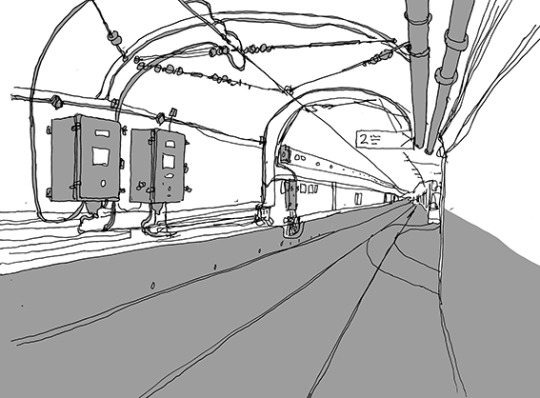
Schoenenbourg Fort, Maginot Line, Alsace. August 2023
#steve faraday#ink drawing#illustration#on location#fineliner#ink sketch#alsace#maginot line#schoenenbourg
15 notes
·
View notes
Photo
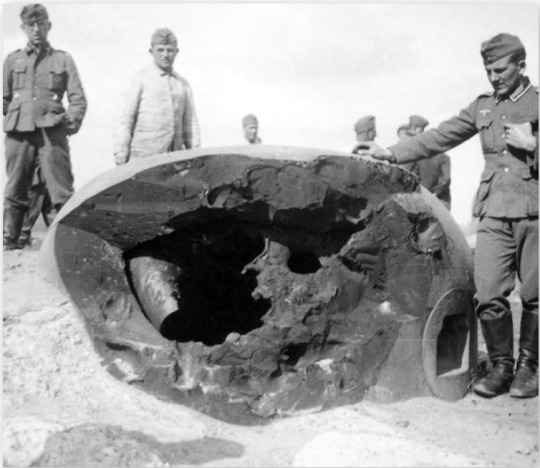
Les effets dévastateurs du canon de 88 mm à courte distance sur l'une des deux coupoles de l'ouvrage d'Eth, petit ouvrage d’infanterie situé le plus au nord de la Ligne Maginot – Bataille de France – Eth – France – 26 mai 1940
#WWII#Bataille de France#Battle of France#Ouvrage d'Eth#Ligne Maginot#Maginot Line#Eth#France#26/05/1940#05/1940#1940
11 notes
·
View notes
Text

AMX-13 dans la ligne Maginot... n'est pas un peu anachronique ? Il s'agit des impressionnantes galeries du plus puissant des forts de la ligne, l'ouvrage du Hackenberg.
Google translation:
AMX-13 in the Maginot line... isn't it a bit anachronistic? These are the impressive galleries of the most powerful fort of the line, the Hackenberg work
6 notes
·
View notes
Text

Plant a row of Magnolia trees up to 280 miles long in France and I guarantee the German army will pull those Panzer tanks right over and get out to smell the flowers thus avoiding a spring surprise.
#Maginot line#flower of the day#flowers#original photographers#photographers on tumblr#flowers of tumblr#minimalism
23 notes
·
View notes
Text
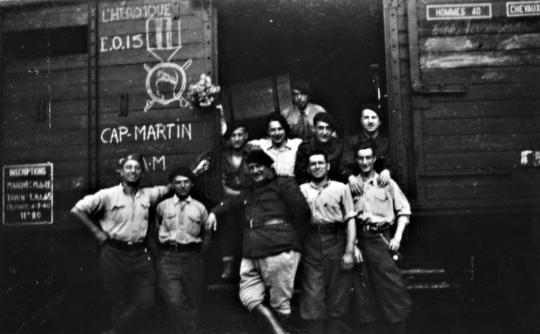
Le 4 juillet 1940, gare de St Raphaël, les artilleurs se regroupent à Roquebrune/Argens pour y être démobilisés.
Collection A. Loviny. Wikimaginot.eu
#157e régiment d'artillerie#maginot line#la ligne maginot#demobilization#world war ii#fall of france#battle of france#armée française#artillerymen#saint-raphaël#var#histoire de france#argens#roquebrune
0 notes
Text
If this is true, then Russia’s maginot line or moskva line had sunk. No matter what dragons teeth or trenches, the line is breached. Russians are going to be massively besieged and surrender to drones.
0 notes
Text
My mind says that the surprise guest in the Nordverse one-shot is going to be Matthew Lillard but my heart says it's Omar
#*matt doing a voice that is slowly crossing the former maginot line* I would like to see the baby#generation nord
50 notes
·
View notes
Text

9 notes
·
View notes
Audio
(AI Artificial Intelligence)
https://soundcloud.com/luis-flipe-silva-santos/the-maginot-line-msg-from-lf-to-nato-pn?si=50b1e0022f774bf6aa0430b735721d93&utm_source=clipboard&utm_medium=text&utm_campaign=social_sharing
0 notes
Text
In 1980, the Israeli columnist Boaz Evron carefully described the stages of this moral corrosion: the tactic of conflating Palestinians with Nazis and shouting that another Shoah is imminent was, he feared, liberating ordinary Israelis from ‘any moral restrictions, since one who is in danger of annihilation sees himself exempted from any moral considerations which might restrict his efforts to save himself.’ Jews, Evron wrote, could end up treating ‘non-Jews as subhuman’ and replicating ‘racist Nazi attitudes’.
Evron urged caution, too, against Israel’s (then new and ardent) supporters in the Jewish American population. For them, he argued, championing Israel had become ‘necessary because of the loss of any other focal point to their Jewish identity’ – indeed, so great was their existential lack, according to Evron, that they did not wish Israel to become free of its mounting dependence on Jewish American support.
Zygmunt Bauman, the Polish-born Jewish philosopher and refugee from Nazism who spent three years in Israel in the 1970s before fleeing its mood of bellicose righteousness, despaired of what he saw as the ‘privatisation’ of the Shoah by Israel and its supporters. It has come to be remembered, he wrote in 1988, ‘as a private experience of the Jews, as a matter between the Jews and their haters’, even as the conditions that made it possible were appearing again around the world.
[...] Anyone calling attention to the spectacle of Washington’s blind commitment to Israel is accused of antisemitism and ignoring the lessons of the Shoah. And a distorted consciousness of the Shoah ensures that whenever the victims of Israel, unable to endure their misery any longer, rise up against their oppressors with predictable ferocity, they are denounced as Nazis, hellbent on perpetrating another Shoah.
[...] One of the great dangers today is the hardening of the colour line into a new Maginot Line. For most people outside the West, whose primordial experience of European civilisation was to be brutally colonised by its representatives, the Shoah did not appear as an unprecedented atrocity. Recovering from the ravages of imperialism in their own countries, most non-Western people were in no position to appreciate the magnitude of the horror the radical twin of that imperialism inflicted on Jews in Europe. So when Israel’s leaders compare Hamas to Nazis, and Israeli diplomats wear yellow stars at the UN, their audience is almost exclusively Western. Most of the world doesn’t carry the burden of Christian European guilt over the Shoah, and does not regard the creation of Israel as a moral necessity to absolve the sins of 20th-century Europeans. For more than seven decades now, the argument among the ‘darker peoples’ has remained the same: why should Palestinians be dispossessed and punished for crimes in which only Europeans were complicit? And they can only recoil with disgust from the implicit claim that Israel has the right to slaughter 13,000 children not only as a matter of self-defence but because it is a state born out of the Shoah.
[...] Netanyahu and his cohort threaten the basis of the global order that was rebuilt after the revelation of Nazi crimes. Even before Gaza, the Shoah was losing its central place in our imagination of the past and future. It is true that no historical atrocity has been so widely and comprehensively commemorated. But the culture of remembrance around the Shoah has now accumulated its own long history. That history shows that the memory of the Shoah did not merely spring organically from what transpired between 1939 and 1945; it was constructed, often very deliberately, and with specific political ends. In fact, a necessary consensus about the Shoah’s universal salience has been endangered by the increasingly visible ideological pressures brought to bear on its memory.
[...] In Israel itself, awareness of the Shoah was limited for years to its survivors, who, astonishing to remember today, were drenched with contempt by the leaders of the Zionist movement. Ben-Gurion had initially seen Hitler’s rise to power as ‘a huge political and economic boost for the Zionist enterprise’, but he did not consider human debris from Hitler’s death camps as fit material for the construction of a strong new Jewish state. ‘Everything they had endured,’ Ben-Gurion said, ‘purged their souls of all good.’ Saul Friedlander, the foremost historian of the Shoah, who left Israel partly because he couldn’t bear to see the Shoah being used ‘as a pretext for harsh anti-Palestinian measures’, recalls in his memoir, Where Memory Leads (2016), that academic scholars initially spurned the subject, leaving it to the memorial and documentation centre Yad Vashem.
[...] It was only after the Six-Day War in 1967 and the Yom Kippur War in 1973, when Israel seemed existentially threatened by its Arab enemies, that the Shoah came to be broadly conceived, in both Israel and the United States, as the emblem of Jewish vulnerability in an eternally hostile world. [...] A Jewish political tradition preoccupied with inequality, poverty, civil rights, environmentalism, nuclear disarmament and anti-imperialism mutated into one characterised by a hyper-attentiveness to the Middle East’s only democracy. [...] Recent American literature most clearly manifests the paradox that the more remote the Shoah grew in time the more fiercely its memory was possessed by later generations of Jewish Americans.
[...] All these universalist reference points – the Shoah as the measure of all crimes, antisemitism as the most lethal form of bigotry – are in danger of disappearing as the Israeli military massacres and starves Palestinians, razes their homes, schools, hospitals, mosques, churches, bombs them into smaller and smaller encampments, while denouncing as antisemitic or champions of Hamas all those who plead with it to desist, from the United Nations, Amnesty International and Human Rights Watch to the Spanish, Irish, Brazilian and South African governments and the Vatican. Israel today is dynamiting the edifice of global norms built after 1945, which has been tottering since the catastrophic and still unpunished war on terror and Vladimir Putin’s revanchist war in Ukraine. The profound rupture we feel today between the past and the present is a rupture in the moral history of the world since the ground zero of 1945 – the history in which the Shoah has been for many years the central event and universal reference.
231 notes
·
View notes
Text

T-26 turret installed along the Stalin Line, much in line with the Maginot and Siegfried Lines. Also just as successful.
30 notes
·
View notes
Photo
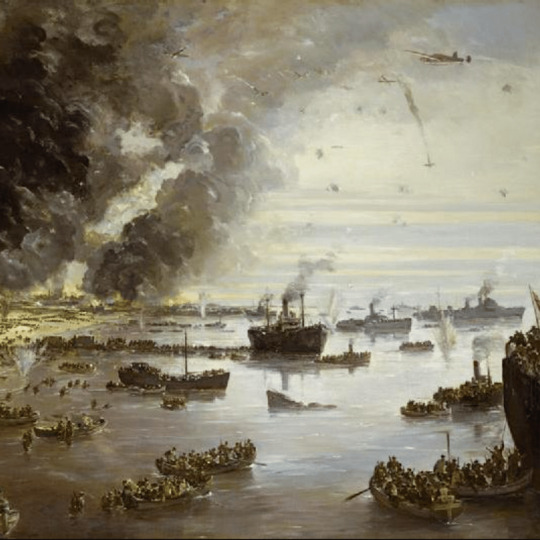
Dunkirk Evacuation
The Dunkirk Evacuation of 26 May to 4 June 1940, known as Operation Dynamo, was the attempt to save the British Expeditionary Force in France from total defeat by an advancing German army. Nearly 1,000 naval and civilian craft of all kinds, aided by calm weather and RAF air support, managed to evacuate around 340,000 British, French, and Allied soldiers.
The evacuation led to soured Franco-Anglo relations as the French considered Dunkirk a betrayal, but the alternative was very likely the capture of the entire British Expeditionary Force on the Continent. France surrendered shortly after Dunkirk, but the withdrawal allowed Britain and its empire to harbour its resources and fight on alone in what would become an ever-expanding theatre of war.
Germany's Blitzkrieg
At the outbreak of the Second World War when Germany invaded Poland on 1 September 1939, France was relying almost entirely on a single defensive line to protect itself against invasion. These defences were the Maginot Line, a series of mightily impressive concrete structures, bunkers, and underground tunnels which ran along France's eastern frontiers. Manned by 400,000 soldiers, the defence system was named after the French minister of war André Maginot. The French imagined a German attack was most likely to come in two places: the Metz and Lauter regions. As it turned out, Germany attacked France through the Ardennes and Sedan on the Belgian border, circumventing most of the Maginot Line and overrunning the inadequate French defences around the River Meuse, inadequate because the French had considered the terrain in this forested area unsuitable for tanks. Later in the campaign, the Maginot Line was breached near Colmar and Saabrücken.
To bolster the defences of France, Britain had sent across the British Expeditionary Force (BEF) under the command of General John Vereker (better known by his later title Lord Gort, 1886-1946). Around 150,000 men, mostly infantry, had arrived in September 1939 to strengthen the Franco-Belgian border. The BEF included the British Advanced Air Striking Force of 12 RAF squadrons. The aircraft were mostly Hawker Hurricane fighters and a few light bombers, all given much to the regret of RAF commanders who would have preferred to have kept these planes for home defence. The superior Supermarine Spitfire fighters were kept safely in Britain until the very last stages of the battle in France. The BEF had no armoured divisions and so was very much a defensive force, rather than an offensive one. More infantry divisions arrived up to April 1940, so the BEF grew to almost 400,000 men, but 150,000 of these had little or no military training. As General Bernard Montgomery (1887-1976) noted, the BEF was "totally unfit to fight a first class war on the Continent" (Dear, 130). In this respect, both Britain and France were very much stuck in the defensive-thinking mode that had won them the First World War (1914-18). Their enemy was exactly the opposite and had planned meticulously for what it called Fall Gelb (Operation Yellow), the German offensive in the west.
Totally unprepared for a war of movement, the defensive-thinking French were overwhelmed in the middle weeks of May 1940 by the German Blitzkrieg ("lightning war") tactics of fast-moving tanks supported by specialist bombers and smartly followed by the infantry. German forces swept through the three neutral countries of the Netherlands, Luxembourg, and Belgium. The 9th Army punched through the Ardennes and raced in a giant curve through northeast France to reach the coast around Boulogne. The BEF and the northern French armies (7th and 1st) were cut off from the rest of the French forces to the south. Germany had achieved what it called the 'Sickle Slice' (Sichelschnitt). By 24 May, the French and British troops were isolated and with their backs to the English Channel, occupying territory from Dunkirk to Lille. Although there were sporadic counterpunches by the defenders, Gort had already concluded that the French army had collapsed as an operational force. Gort considered an attack on the Germans to the south, which he was ordered to make, would have achieved very little except the annihilation of his army. The BEF must be saved, and so he withdrew to the north.
Continue reading...
26 notes
·
View notes
Note


Ouvrage Hackenberg (Maginot Line fortifications), France, Earth
#have you been here#poll#france#admin note: please do not add the planet and galaxy unless it's directly relevant! most places should stop at the country
15 notes
·
View notes
Text
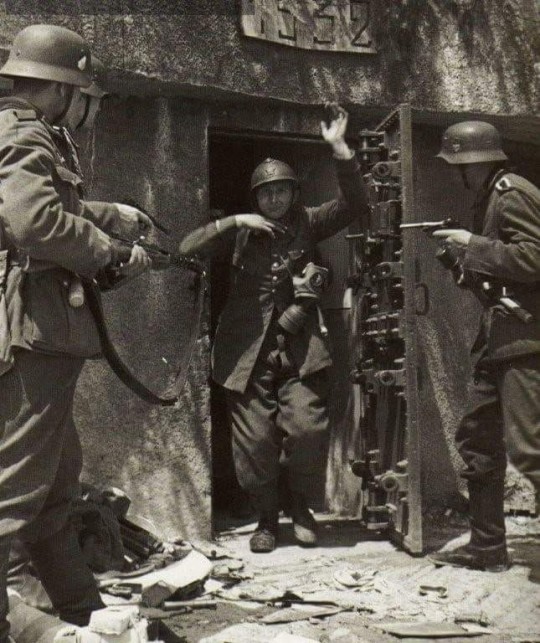
French soldier surrendering to the Germans at the Maginot Line, June 1940
52 notes
·
View notes
Text
Passivity is Killing Us
Israel’s defensive strategy in recent years has been primarily passive. Passive defense does not target an enemy, but puts obstacles in his path. Our passive defenses include security barriers on our borders, with a billion-dollar one under and above the ground next to Gaza. We have built a technological marvel of a layered anti-missile defense system. Such means can – sometimes and to some extent – mitigate the damage that an enemy can do, and are an important part of a country’s defensive strategy. But even when they are successful, they do not deter or weaken the enemy. Indeed, they encourage him to improve his technology and his tactics and try again.
In the early days of the State of Israel, there were no Iron Domes or sensor-laden fences. We responded to terrorist attacks by vicious retaliation – for example, by the famous Unit 101, commanded by Ariel Sharon. That is active defense. Active defenses also have a flaw, especially for a country with little strategic depth, which is that an enemy can do a great deal of damage by a surprise attack before a response can be mounted. But an active defense has deterrent power that passive means do not. And, most importantly: a passive defense alone never won a war. The RAF won the Battle of Britain, but it took land invasions from the east and west to defeat the Nazis.
Over-reliance on passive defense can be dangerous. The Maginot and Bar-Lev lines were circumvented, and the Gaza fence penetrated. Iron Dome can be overwhelmed by mass launches of rockets, and is economically unsustainable. Hamas’ success in its murderous attack on southern Israel was made possible in large measure by our overemphasis, over a period of years, on passive tactics. With each round of fighting, Hamas improved its ability to get rockets through the Iron Dome. Because we haven’t seriously tried to destroy its infrastructure, Hamas was able to build and improve the tunnel system that we are now paying in Israeli lives to destroy. And because of our arrogance and overconfidence, the astronomically expensive security barrier proved almost worthless.
And there is another aspect that must be considered: the psychological effect, not just in Israel, but throughout the world. It has become generally accepted that Israel is a target, in way that Russia, for example, could never be. It became understandable that “frustrated” Palestinians could launch thousands of rockets at us while we bombed empty buildings in return, or Houthis in Yemen could launch Iranian missiles at our cities from 2000 km. away. Why not? We didn’t retaliate seriously.
Passive defense is more popular with the international community than active retaliation. You don’t often read in the NY Times or the Guardian about the suffering of the Qassam missiles that are blown to bits by Iron Dome. The world has gotten used to Israel responding in the most measured way to attacks that would cause other nations to strike out viciously, as the US did after 9/11. Although Israel’s record of fighting in populated areas while minimizing civilian casualties is much better than that of any other country, including the US, we receive daily warnings from President Biden to try harder in that respect. The unstated subtext is he can pull the plug on us at any moment.
I do not want to say that our unbalanced defensive posture is anyone’s fault but our own. But it appears to fit American policy, which since 1973 has been that Israel should never be permitted to win a decisive victory, and must return to her pre-1967 size. And the US uses the very powerful lever of military aid to encourage this. It’s easy to get funding for Iron Dome interceptors, but hard or impossible to get bunker busters or tanker aircraft for midair refueling. At this moment, the US Secretary of State is on his way here again to keep a tight rein on us, and an American general is sitting with our Chief of Staff to “help” us manage the war with Hamas.
Our dependence on American military aid and overemphasis on passive defense has gotten us into a very dangerous situation. Not that we can’t defeat Hamas, even though it will be significantly more costly than it would have been in January of 2009 (when Obama’s people told us to get the IDF out of Gaza before the inauguration). The real danger is in the end game, where the US State Department and administration believe they will finally be able to implement their long-sought goal of a unified sovereign Palestinian state in Judea, Samaria, the Jordan Valley, and Gaza, under the control of the PLO.
I won’t speculate today about whether they understand that this would be a major step toward the end of the Jewish state, but that is in fact the case. Israel must do whatever she can to prevent the imposition of this “solution.” The best way to remove the threat from Gaza, to prevent a Palestinian terror state from coming into existence, and to send a message to all of our enemies that we will no longer be a passive target would be to destroy Hamas, to force a large part of the population of the Gaza strip to emigrate, and to establish Israeli control over it.
Can Israel stand up against the US – or at least against powerful circles in the American government? We’d better. Our survival depends on it.
21 notes
·
View notes